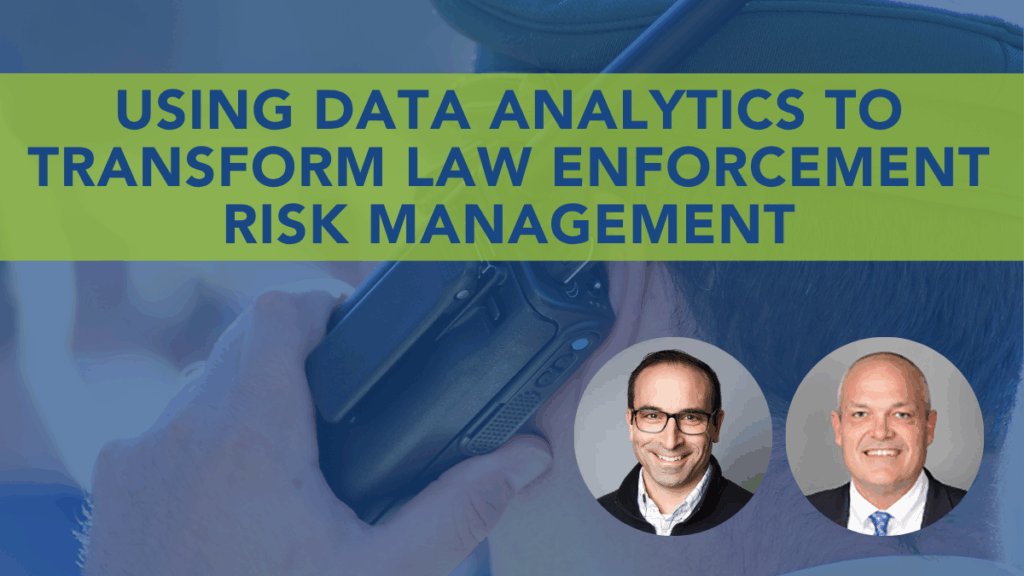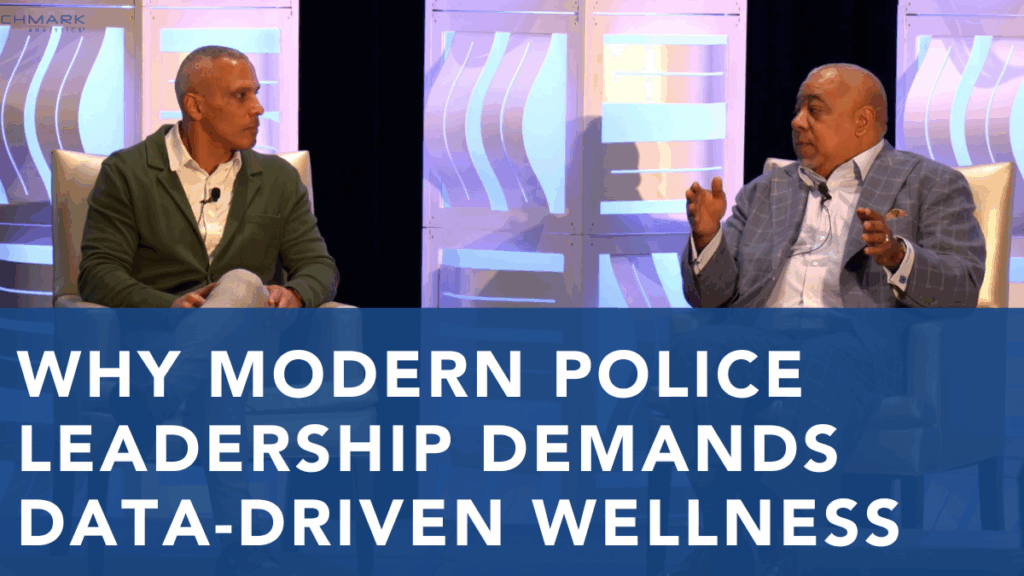The Role of Societal Change in Police Reform and Accountability
Posted
November 23, 2020
Share:
The following is part 2 of 2 in our IACP Leadership Series conversation between Benchmark CEO Ron Huberman and Bill Bratton, former Police Commissioner of New York City. In this entry, Mr. Bratton discusses current police accountability intentions, as well as the need to re-imagine society in order to reform policing and regain public trust.
RH: Bill, you’ve had the opportunity to reform and change the Los Angeles police, the NYPD following your term in both cities, they became broadly more accepted, certainly from my observation by the communities that you served, crime was down. This is a unique moment…this is a challenging moment. If you were to find yourself tomorrow back in the police chief chair, what would be the very top things you would do to try to win back the trust, to try to get things on a stable course if you were chief today?
BB: I’ll be quite frank with you, I would do exactly what I did in Boston in 1991, New York City in ’94, Los Angeles in 2002, and New York in 2014. Effectively, what I do, what I think many American police chiefs attempt to do, is to look at their departments like a doctor looks at a patient…no two cities are alike. The good news is, like a doctor, there is a broad range of expertise, knowledge, tools, equipment, ideas, prescriptions – if you will – on the wall. It’s the job of the police leader to identify what are the illnesses afflicting his or her city and what medicines need to be used and how are they to be prioritized.
I would argue that in New York, in LA, my most recent three experiences – New York twice and LA once – that a lot of the new medicines we applied there were beneficial to that patient. The good news is they were transportable, they could be used in other cities, maybe in different prioritization, maybe in different measures. What would be the first thing I would do? The same thing I always do, I would go in and do the CAT scan of the patient, CAT scan the two patients, basically the department and the city.
What are the strengths, what are the illnesses, and then how do the police match up with the illnesses that they’re being asked to deal with…and so it’s not a one size fits all. There’s also something that – you certainly, your company is engaged in at the moment – is the demand for police accountability of the organization, the leadership of the organization, down to the rank and file. It’s something we have not been very good at in the sense of both internally, and certainly externally, explaining ourselves to the public on our accountability systems.
The training we give, the supervision we give, the discipline we issue …there’s no denying that that is the Achilles Heel of American policing. That our accountability systems, the ability to identify at-risk officers before they come on the job, watch them as they come on the job and grow, and then effectively start retraining when appropriate…those are areas that universally in American policing, need to be priorities of focus — as well as the idea of understanding how you evaluate an officer. How do you identify an officer that’s in trouble?
This is actually going back to the preventive mode I talked about, the idea of prevent it before it becomes a crises or an illness. So exactly as we learned to do with crime and disorder…exactly as doctors will get a patient to identify what hereditary traits does this person have, what danger signals are there. Well, that’s what policing – essential to moving forward, to meet the needs of the community – is going to do for a much more transparent and effective set of accountabilities.
RH: What’s interesting about what you said Bill is a little bit about the conversations that I have with chiefs today, which is that something occurs…they go back, they pull everything on the officer, because obviously it’s going to be discoverable, it’s going to come out in court, and the chief is left in the following position: they either have to tell the community they didn’t know in a very genuine way because they didn’t have the data to know, or they knew and they didn’t care.
Either narrative in today’s context of policing just doesn’t resonate, meaning people believe, I think, fundamentally that you should know, so you don’t get the benefit of the doubt to that preventive piece.
Just a quick note from our research, Bill, is exactly what you’re saying in the sense that it’s a small percentage of folks. But what happens is those small percentage of folks find each other and work together, and often will congregate in a watch under a similar supervisor where you can have a trouble pocket. You can have a highly reputable functioning police agency and you can have one or two watches across the city that are out of control and problematic. To the degree you can break that up and get in front of that, I think is an opportunity for change — that’s very powerful in today’s world.
The two things that I think about from listening to your comments — one is there is this American reality…you talked about your Boston Police experience in the ’70s…I can tell you I policed in the Chicago police in the ’90s and saw racist actions. There is this generational dialogue that when I talk to my African-American friends and folks who live in communities that are highly policed where the families have stories of injustice, and so there has been this rage that has built — not because so much of what has occurred now, but because what has occurred now is representative of all these stories that have been passed down of the injustice.
And there’s now an opening or a moment where there is an airing of all of this generational grievances from grandparents to parents, of things that have been experienced, that it’s very hard for me to understand this moment, versus this moment being representative of a history, that I think is interesting.
Just one other comment and I’m going to jump to my next question to you, Bill, which is also this idea that what also strikes me about this moment is that when we look at the issue of race, opportunity, and lack of opportunity, it’s a very broad conversation. When I was school superintendent, I would always compare the amount of money I had to educate a student versus someone on the border of Chicago. I had about $7,000 a year, as a school superintendent in Chicago, to provide full education per student. If you lived on the other side of Howard Street, which is Evanston, that community spent $21,000 a year educating every student. Yet, the conversation around this issue is only about the police — it doesn’t cover housing discrimination, it doesn’t cover issues of education. And I think part of the challenge that police have is that until we broaden the conversation to what it rightfully should be, which is a larger societal conversation, police are going to own all these issues. Police can never own all these issues. It is a fundamentally unrealistic premise that somehow we need to have a larger dialogue about.
BB: Let me add to your comment about this moment, the moment, and the comments you just made. I’m thinking of earthquakes, seismic shifting of plates, volcanoes building up and exploding. Why is this time so different – 2020…2019 – than it was back in the ’60s, and then in the ’70s, then in the ’90s again?
One of the things that we are seeing is that we have been the dumping ground, if you will, for a lot of society and the government’s failed efforts to deal with mental illness…to deal with the drug crisis…to deal with the education crisis…to deal with the housing crisis…to deal with the unemployment crisis. All of those are significant influences on minority populations who are impacted the most by those things that the police don’t control.
When we let all the mentally ill out of the institutions in the ’70s and created the homeless populations on the street, who ended up having to service that population? Police. When we ended up with the drug crisis, particularly the ’80s and the occurrence now with opioids, who ends up dealing with that because of the government’s failure to adequately address that? The police. Who ends up with a failure of the education system, something you had mentioned that you had intimacy with from so many perspectives? It is the police, because if those kids don’t stay in school, are out on the streets on the corners, who are they going to end up encountering as they’re hanging out?
I believe what has happened at this moment and one of the positives about this moment, is that we are basically facing a reckoning. The reckoning around systemic racism, which is now being much more discussed and in a much more transparent fashion that it does exist.
The good news is that we’re at a point of reckoning. While the attention right now has been on police, police reform, and unfortunately the very visible actions of the police — that we are now entering into a discussion and appreciation that you can focus all you want on the reform of the police, but until you reform a lot of these other issues, the seismic plates are going to continue to rub against each other. Even though it looked good on the surface, that police reform by wonderful chiefs who want to reform…those other issues, if they’re not addressed – boom – they’re going to continue to explode.
RH: It’s clearly an “and” meaning the police reform, the reckoning on race, the historic reckoning of the race between police and communities today, we need to figure out that reimagining of the police that wins the trust and we concurrently have to make it a bigger conversation so that we solve these other problems and we get them on the table. Ultimately, I think we’re both agreeing that without other reform on other issues of equity as it relates to education and investment, I don’t know if the police alone will ever get us out of where we are.
This interview has been edited for clarity.
Related Posts
Ready to Experience the Benchmark Difference?
Benchmark Analytics and its powerful suite of solutions can help you turn your agency’s challenges into opportunities. Get in touch with our expert team today.



